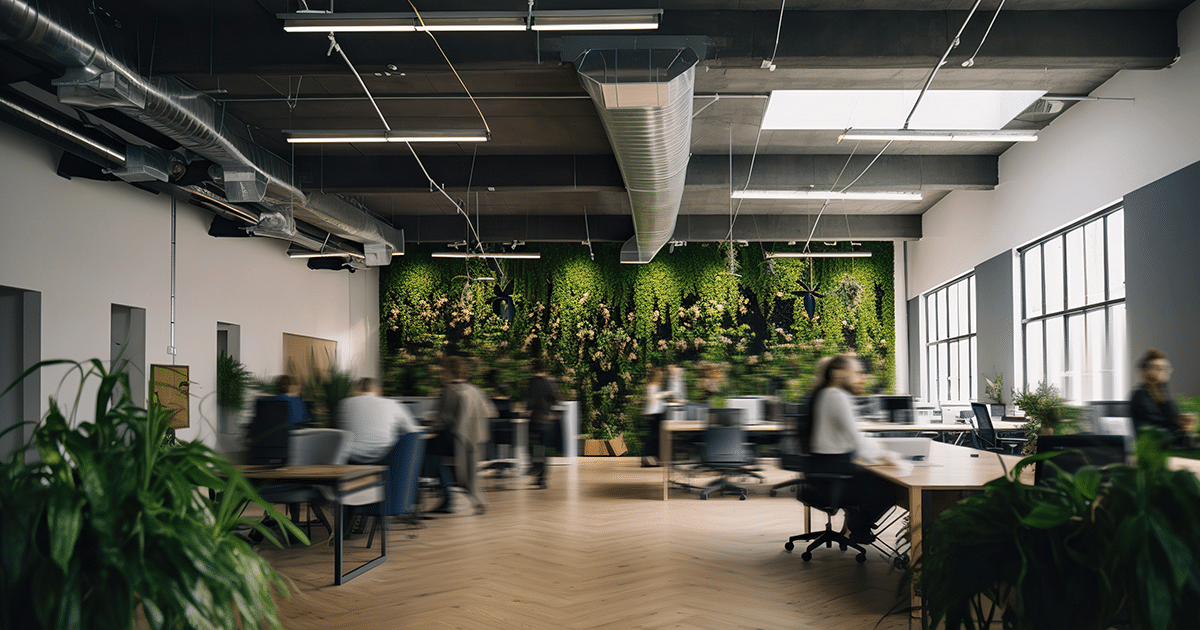Sweden – A recent survey conducted by SIFO (Swedish Institute for Opinion Surveys) has revealed a significant change in attitudes towards sustainability in the last five years. The survey found that 56% of respondents said it had become more important to them that their employer works actively with the environment and sustainability. The biggest shift in attitude was seen among young women, indicating that sustainability is becoming a priority for a younger audience.
With its front-runner position and credibility on climate and environmental issues, Sweden tends to highlight sustainability trends before they gain momentum elsewhere. This survey shows how attitudes towards sustainability are changing rapidly; the trend is expected to become even more prominent in the coming years and will have important consequences for how businesses operate and run their corporate real estate and workplaces.
“People’s attitudes drive change, so it is gratifying that more and more people want to work for companies that prioritize their environmental work. Employers have everything to gain by taking the lead in sustainable and energy-efficient workplaces – both to reduce their climate impact and costs, but also to strengthen their employer brand,” says Thomas Marx, IoT Expert at Spacewell.
Biggest change among young women
56 percent of Swedes state that it has become more important that their employer works actively with the environment and sustainability over the past five years. The biggest change in attitude has occurred among women aged 18-29, where 64% state that sustainability at work has become more important. This is according to a SIFO survey conducted on behalf of Spacewell, a company that uses digital solutions to create smart and energy-efficient workplaces for companies such as Accenture, AXA, Ørsted, Deloitte, and PostNord.
Green transition
Buildings account for about 40 percent of Sweden’s energy use and more than a fifth of greenhouse gas emissions from a lifecycle perspective. Now that the EU is tightening legislation on corporate sustainability, for example, through the new CSRD reporting directive, companies are required to analyze their value chains and show how they contribute to a green transition.
“Smart and energy-efficient workplaces are no longer a yes-or-no question – it is a question of now or next year. The advantage is that reducing climate impact usually also means reducing costs. “Making your workplace more energy efficient, just by using AI-driven software, can help companies cut their energy costs by 20 percent,” says Thomas Marx.
Spacewell is an international company that develops new technology to contribute to smarter building management, energy-efficient offices, and a more pleasant working environment. Building management, the use phase of buildings, accounts for up to 80 percent of the total lifecycle costs, and Spacewell wants to use digital solutions to contribute to a long-term impact for more sustainable workplaces.
About the sustainability survey
This news release is based on a survey conducted by Kantar Sifo via online interviews between 12 and 21 May 2023. The respondents are a representative sample of the Swedish population. A total of 1,001 interviews were conducted.
Do you think the importance of your employer working actively with the environment and sustainability has changed in the last five years?
| All | Men | Women | |
|---|---|---|---|
| Yes, it has become much more important | 20 % | 22 % | 18 % |
| Yes, it has become somewhat more important | 36 % | 33 % | 38 % |
| Yes, it has become slightly less important | 4 % | 5 % | 3 % |
| Yes, it has become much less important | 1 % | 1 % | 1 % |
| No, it has not changed | 18 % | 23 % | 13 % |
| Doubtful, don’t know | 21 % | 16 % | 27 % |
| Number of responses | 1,001 | 500 | 501 |






